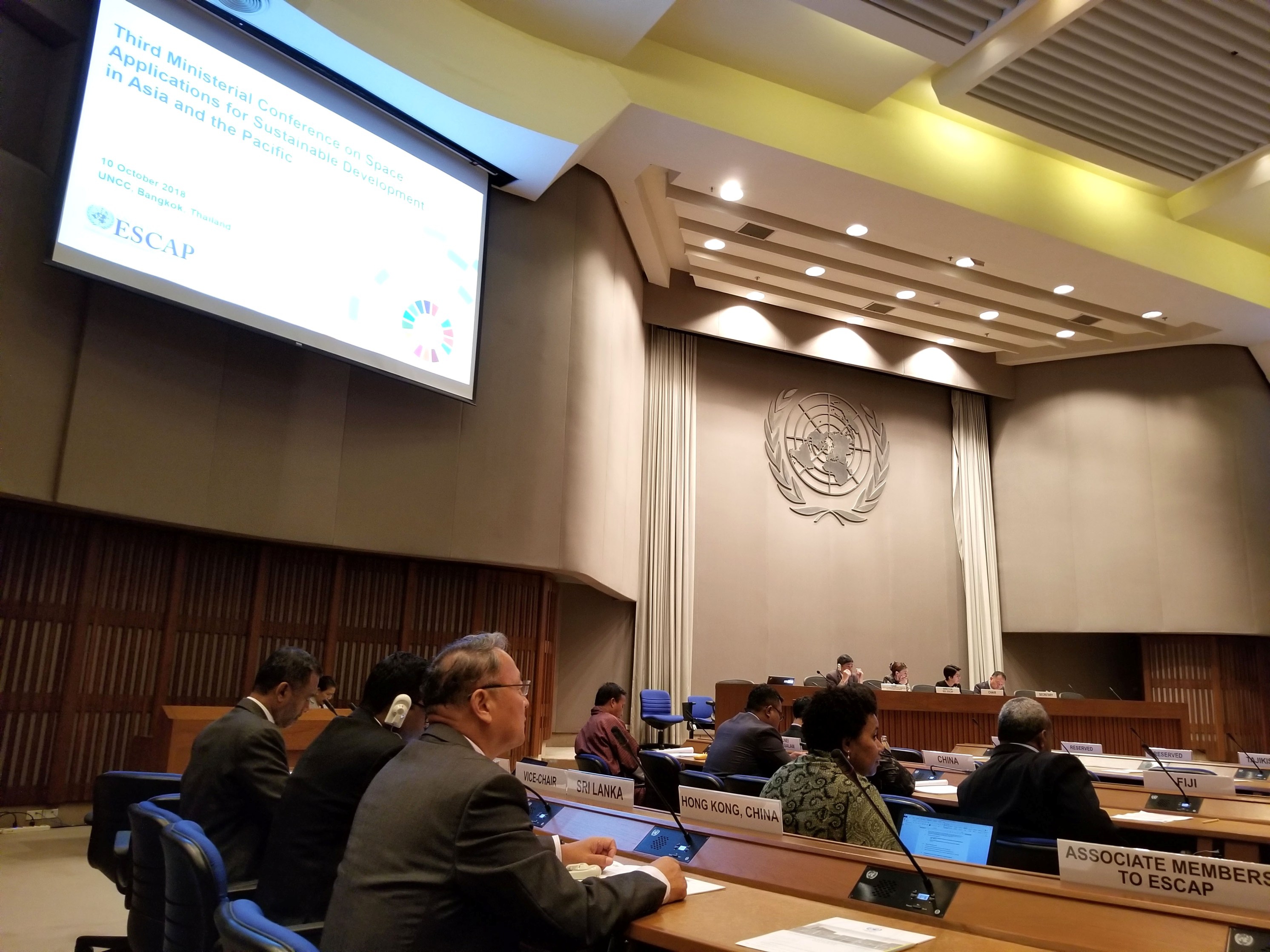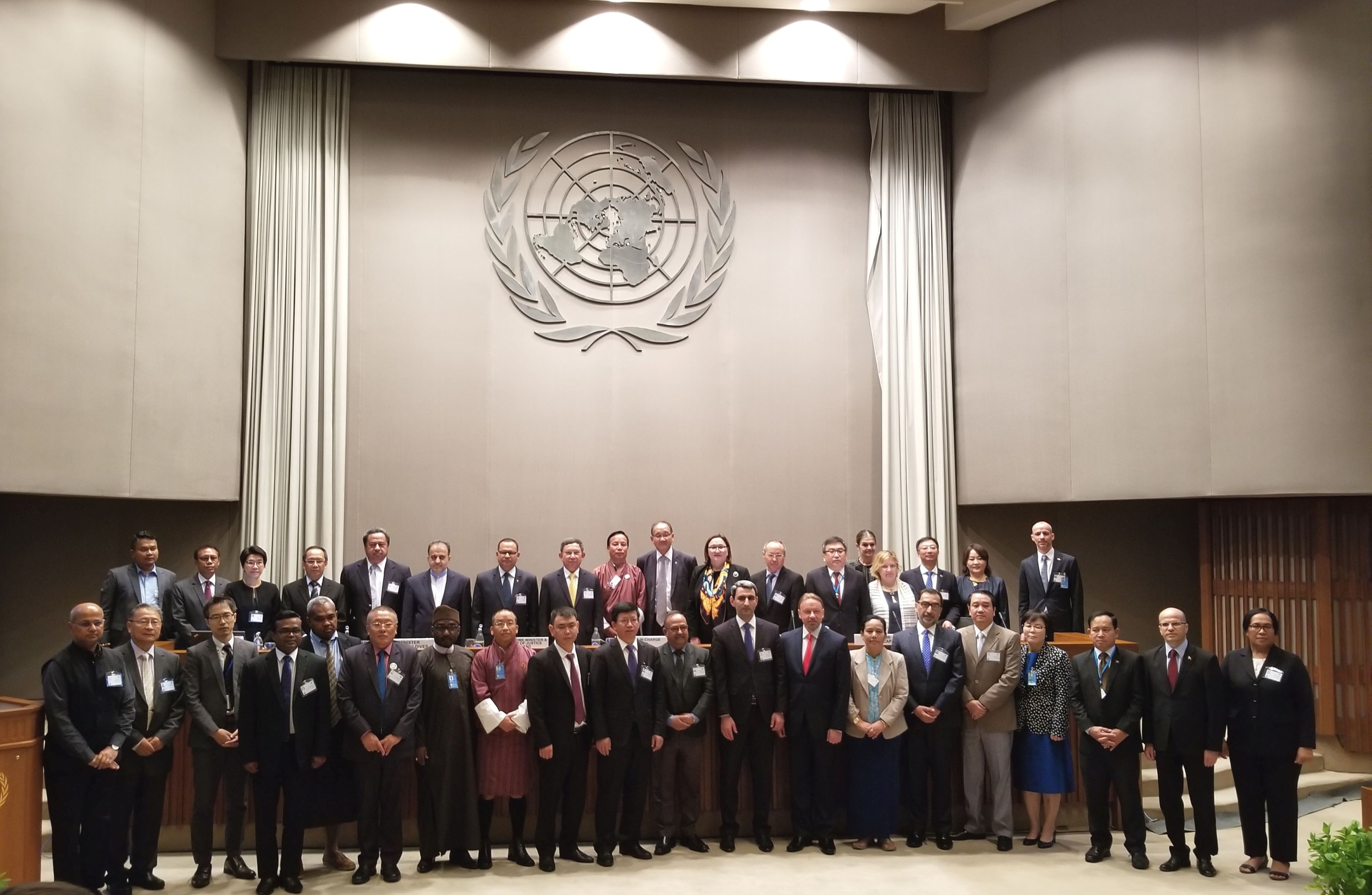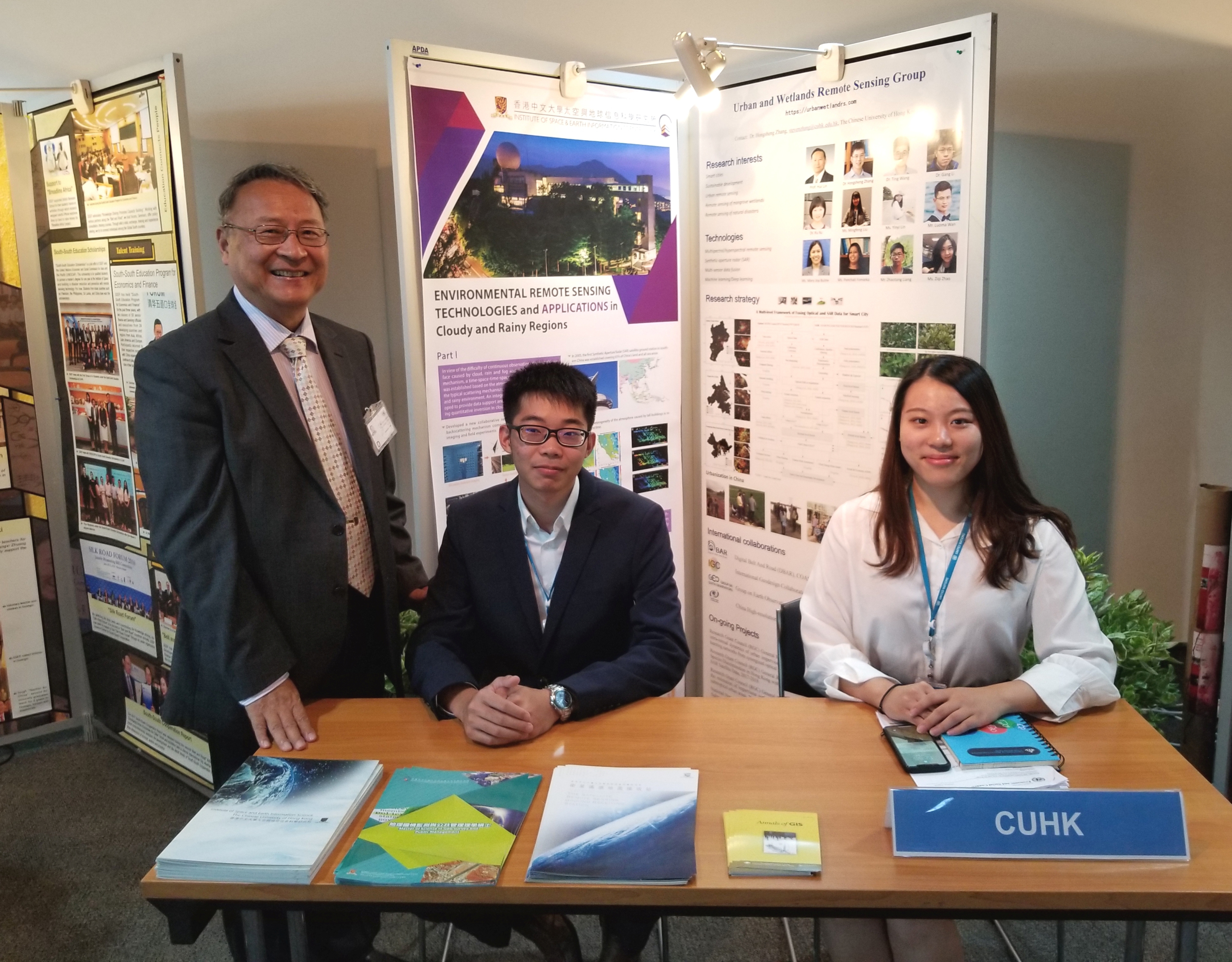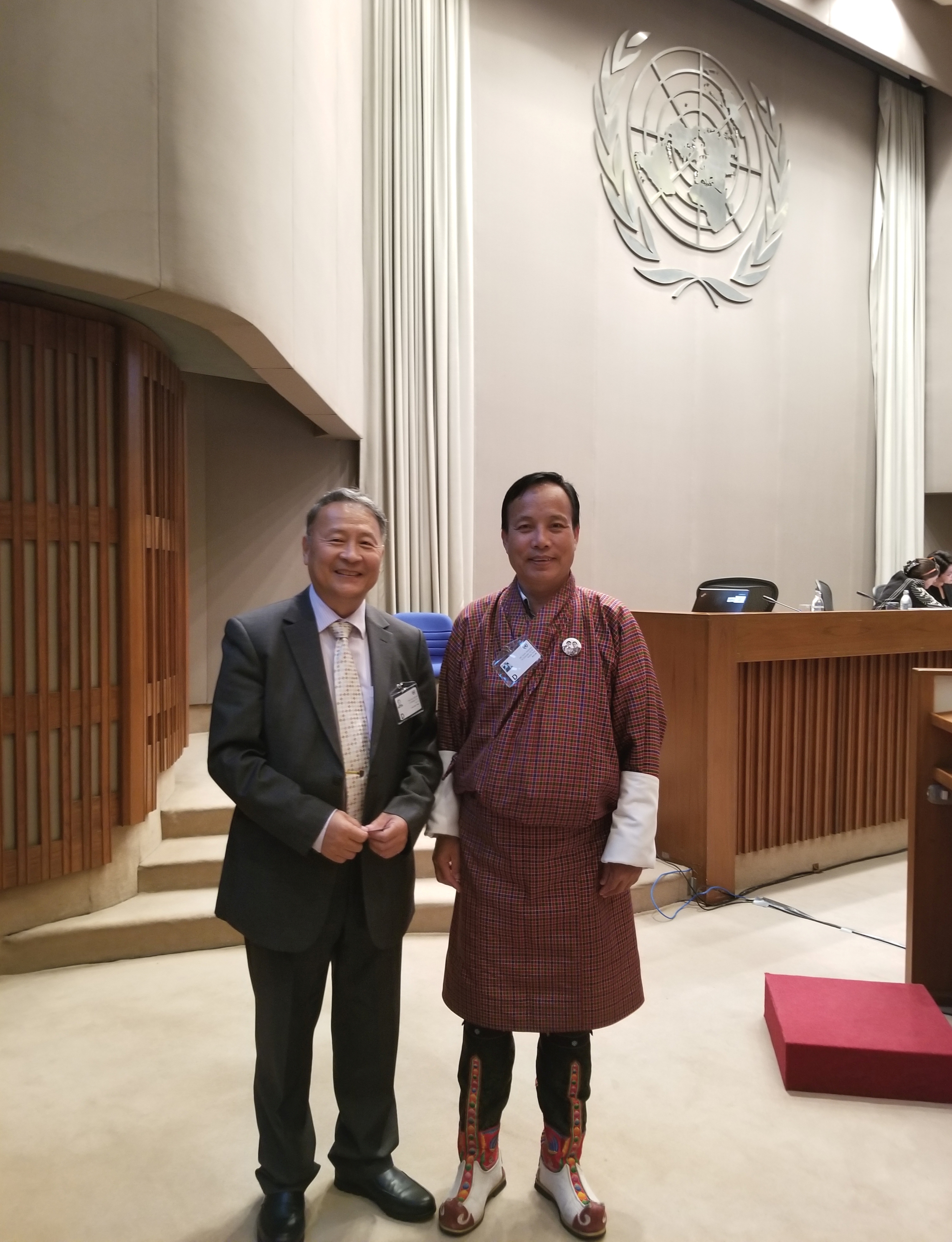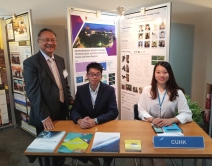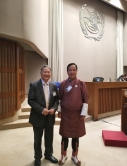News Centre
CUHK Professor Hui Lin represents Hong Kong to attend the United Nations Third Ministerial Conference on Space Applications for Sustainable Development in Asia and the Pacific
Professor Hui Lin, Director of the Institute of Space and Earth Information Science (ISEIS), The Chinese University of Hong Kong (CUHK), was invited by the United Nations Economic and Social Commission for Asia and the Pacific (UN ESCAP) to attend The Third Ministerial Conference on Space Applications for Sustainable Development (the Conference) in Asia and the Pacific Region on 10 October 2018.
The Conference held in Bangkok, Thailand, was co-organised by the UN ESCAP and the Royal Thai Government. It was convened to enhance regional cooperation and consider concrete steps to expand the access to and use of space applications for sustainable development. Professor Lin was recommended by the Trade and Industry Department, Hong Kong SAR government to attend this ministerial conference as Hong Kong’s representative.
Professor Lin shared his vision on space applications for sustainable development in Asia and the Pacific, introduced the development of the Guangdong-Hong Kong-Macao Greater Bay Area and the establishment of the Satellite Application Consortium of the Greater Bay Area. Together with CUHK students who are members of the sixth group of the ISEIS United Nations internship programme, Professor Lin introduced ISEIS research programmes to participants of the Conference. They gave a briefing on the satellite remote sensing research programmes in ISEIS and their applications in the Greater Bay Area, the Poyang Lake watershed (the biggest fresh water lake in China), the glacial dynamic monitoring in the Tibet Plateau and international water resources.
The Conference was a recognition of the significance of space science and technologies and their application towards the Sustainable Development Goals (SDGs), and released a Ministerial Declaration reflecting the policy decisions of governments and an Asia-Pacific Plan of Action on Space Application for Sustainable Development (2018-2030).
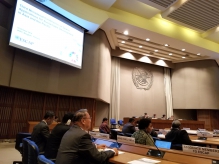
Professor Lin (back row, right) speaking in The Third Ministerial Conference on Space Applications for Sustainable Development in Asia and the Pacific.
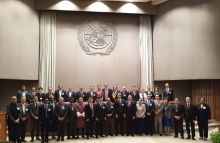
Professor Lin (first row, 2nd from left) in The Third Ministerial Conference on Space Applications for Sustainable Development in Asia and the Pacific.
